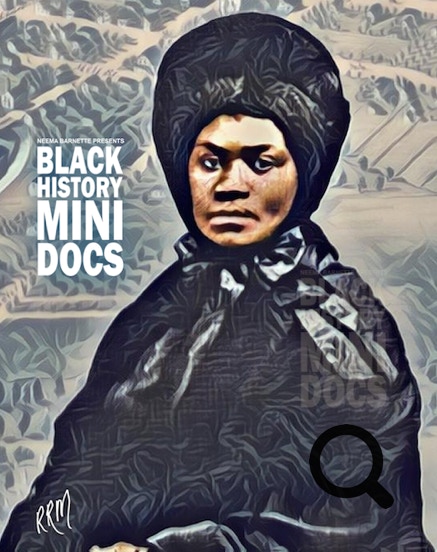
ELIABETH DENISON FORTH
The First Black Landowner in America.
Artist: #ReedRMcCants
Born enslaved in 1786, Elizabeth nicknamed Lisette, was the second of six children. She never fully learned how to read or write, but her comprehension skills were extraordinary.As a child, she learned Native American languages from a neighbor to the point that eventually she was able to serve as a translator.
After her family's enslaver died in 1806 the Denison Family was supposed to be freed by a decree. The Michigan Territorial Council did not want to honor their freedom.Lisette’s two older brothers found their first job as free man, working for a Detroit-based lawyer, Elijah Brush and he helped the Denison’s sue for custody of their children. When the verdict came back from the Michigan Territorial Supreme Court, however, it was not positive. The court had ruled that all the children would remain slaves for the rest of their lives except for the youngest of the children, who would be freed when they turned 25 because he had been born after the Ordinance took effect. But Lisette and her family refused to succumb to the cruel and inhumane judgment and ruling.They chose to escape across the Detroit River into Windsor, Canada to gain their freedom.
A short while later all slavery in Michigan was abolished unconditionally. Lisette returned to Detroit in 1812 as a free woman. She found a job working as a maid to Solomon Sibley, a wealthy white land owner. He would give her hints on how to invest her money into stocks and real estate. She had a very good relationship with her employer and she began investing her money in land and property. She had learn a little bit of reading and writing while living in Canada, however she was very good with math. So she kept a careful record of all financial transactions.
She soon amassed a great deal of wealth mainly through investments in stock and real estate, and before long she was looking for other ways to invest her money. Finally, after years of investing in stocks and buildings, on April 21, 1825, Lisette bought 48.5 acres of land in Pontiac, Michigan. She bought the land from Pontiac's founder, Stephen Mack, who was the head and founder of the Pontiac Company. This one single transaction made her the first black property owner in the United States. She purchased the property as an investment, leasing it to one of her brothers. She sold the property in 1837 for $930. Part of what was once Lisette’s property became the Oak Hill Cemetery and there was still, in the early twenty-first century, a marker stating that the property had been once owned by Lisette.
Lisette marriage was rather short-lived, as her husband died sometime around 1830. After her husband's death she began working full-time for the John Biddle family in 1831 for 30 years. She kept saving her money and investing it in whatever caught her fancy. She bought an interest in the steamboat "Michigan," which was a popular dinner cruise boat at the time. She acquired some shares in Farmers and Mechanics' Bank, one of the most successful banks in the Detroit area in the 1800s. Both investments were profitable. In 1837 Forth decided to buy another plot of land, this time in Detroit.
After living in Paris for several years and by the end of her life she had accrued a considerable fortune. She lived out the last ten years of her life as a free woman, during the times of slavery, living in her own home in Detroit. She died alone at home on August 7, 1866. She was buried at Detroit's Elmwood Cemetery. Lisette left large portions of her fortune to help build several churches and hospitals.
- BHMD
Copyright Black History Mini Docs Inc. 2025 All Rights Reserved.

















